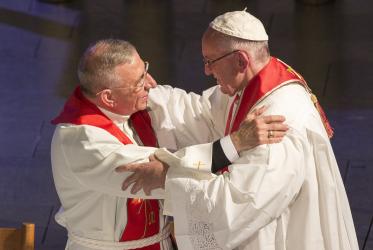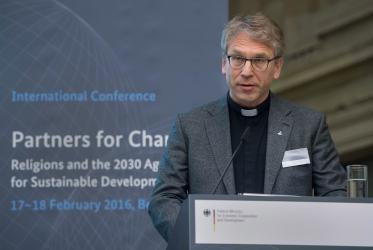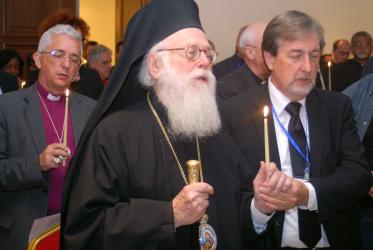Displaying 1 - 14 of 14
05 October 2021
Churches in Norway and Pakistan break new ecumenical ground
26 January 2017
Jürgen Moltmann leads ecumenical reflections in Geneva
14 January 2016
Basel University honors Ghanian Methodist theologian
09 December 2015
Panel revisits Dietrich Bonhoeffer’s ecumenical legacy
05 March 2015





